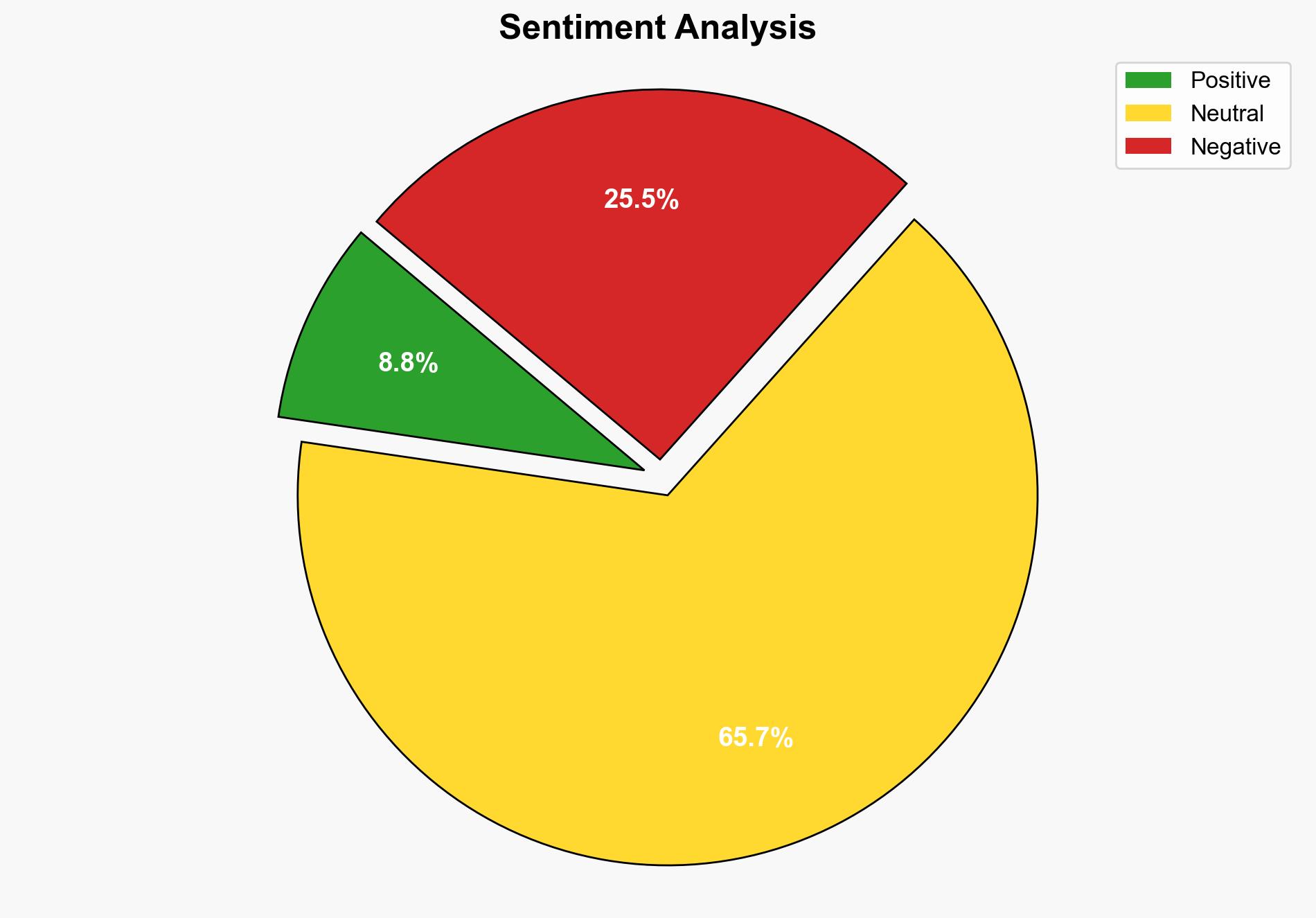Lebanons Aoun calls for end to Israeli attacks in meeting with US envoy – Al Jazeera English
Published on: 2025-10-28
Intelligence Report: Lebanon’s Aoun Calls for End to Israeli Attacks in Meeting with US Envoy – Al Jazeera English
1. BLUF (Bottom Line Up Front)
The most supported hypothesis is that Israel’s continued military actions in Lebanon are aimed at countering Hezbollah’s influence and military capabilities, despite the ceasefire agreement. Confidence level is moderate. It is recommended that diplomatic channels be reinforced to de-escalate tensions and ensure adherence to the ceasefire, with the involvement of international monitoring bodies.
2. Competing Hypotheses
1. **Hypothesis 1**: Israel’s military actions are primarily defensive, targeting Hezbollah to prevent the group from enhancing its military infrastructure in southern Lebanon, which poses a direct threat to Israeli security.
2. **Hypothesis 2**: Israel’s actions are part of a broader strategy to destabilize Lebanon, aiming to weaken Hezbollah’s political influence and leverage regional power dynamics.
Using the Analysis of Competing Hypotheses (ACH) 2.0, Hypothesis 1 is better supported due to Israel’s historical focus on neutralizing perceived threats from Hezbollah. The pattern of targeting specific military infrastructure aligns with defensive postures rather than broader destabilization efforts.
3. Key Assumptions and Red Flags
– **Assumptions**: It is assumed that Israel perceives Hezbollah as a significant threat and that military actions are a direct response to intelligence on Hezbollah’s activities.
– **Red Flags**: The lack of independent verification of the specific targets and outcomes of Israeli strikes raises questions about the accuracy of reported motives. Additionally, the potential bias in reporting from regional media sources could skew perceptions.
– **Blind Spots**: The internal political dynamics within Lebanon, including Hezbollah’s domestic support, are not fully considered, which may affect the overall stability and response to Israeli actions.
4. Implications and Strategic Risks
– **Escalation Risks**: Continued Israeli strikes could lead to a broader conflict involving regional actors, potentially drawing in international stakeholders.
– **Geopolitical Impact**: The situation could strain US-Lebanon relations, especially if the US is perceived as not adequately addressing Israeli violations of the ceasefire.
– **Economic and Humanitarian Concerns**: Prolonged conflict could exacerbate Lebanon’s economic crisis and humanitarian situation, affecting regional stability.
5. Recommendations and Outlook
- **Mitigation**: Strengthen diplomatic efforts through the United Nations and key international players to enforce the ceasefire and facilitate dialogue between Israel and Lebanon.
- **Exploitation**: Utilize international pressure to encourage Hezbollah to engage in political rather than military strategies.
- **Scenario Projections**:
– **Best Case**: Successful diplomatic intervention leads to a renewed ceasefire and reduction in hostilities.
– **Worst Case**: Escalation into a broader regional conflict involving multiple state and non-state actors.
– **Most Likely**: Continued low-intensity conflict with periodic escalations, maintaining a fragile status quo.
6. Key Individuals and Entities
– Joseph Aoun
– Morgan Ortagus
– Hezbollah
– United Nations
7. Thematic Tags
national security threats, regional focus, geopolitical dynamics, conflict resolution




